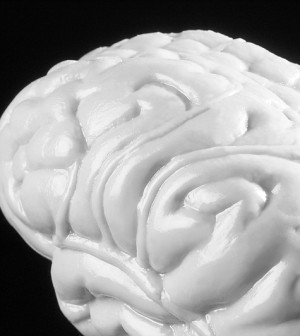- The Best Time of Day to Drink Bone Broth to Maximize Health Benefits
- 8 Ways to Increase Dopamine Naturally
- 7 Best Breads for Maintaining Stable Blood Sugar
- Gelatin vs. Collagen: Which is Best for Skin, Nails, and Joints?
- The Long-Term Effects of Daily Turmeric Supplements on Liver Health
- Could Your Grocery Store Meat Be Causing Recurring UTIs?
- Are You Making This Expensive Thermostat Error This Winter?
- Recognizing the Signs of Hypothyroidism
- 10 Strategies to Overcome Insomnia
- Could Artificial Sweeteners Be Aging the Brain Faster?
Too Many Foster Kids With ADHD Treated With Antipsychotic Drugs: Study


Antipsychotic drugs are increasingly being prescribed to treat attention-deficit/hyperactivity disorder (ADHD) in children and teens in foster care, according to a new study.
The use of these drugs to treat ADHD has not been approved by the U.S. Food and Drug Administration, and is known as an “atypical” use, the researchers explained.
But their study found that antipsychotics were used to treat nearly one-third of foster care youth aged 2 to 17 who had been diagnosed with ADHD. The most common types of antipsychotics used were risperidone, aripiprazole and quetiapine.
The study looked at administrative data on more than 260,000 youths aged 2 to 17, enrolled in one state’s Medicaid program in 2006, to determine the average number of days of atypical antipsychotic use in kids. Researchers also looked specifically at a subgroup of kids with ADHD who were not diagnosed with any other mental health conditions.
The findings by researcher Julie Magno Zito, at the University of Maryland at Baltimore, and colleagues were published online recently in the Journal of Child and Adolescent Psychopharmacology.
“This study adds critical hard data to our understanding of a persistent and unacceptable trend in pediatric psychiatry,” Dr. Harold Koplewicz, journal editor-in-chief and president of the Child Mind Institute in New York City, said in a journal news release.
“Our poorest, most vulnerable children, lacking access to evidence-based care, are receiving potentially harmful treatment with little oversight. The highlight of [the] paper for any reader should be the simple but necessary recommendations for antipsychotic prescribing and monitoring in these populations,” he added.
More information
The U.S. Centers for Disease Control and Prevention has more about ADHD treatments.
Source: HealthDay
Copyright © 2026 HealthDay. All rights reserved.










